 History will record that World War III was fought on the Internet. It began many years ago, probably in 2003, when politicians like Howard Dean first recognized the power of blogs.
History will record that World War III was fought on the Internet. It began many years ago, probably in 2003, when politicians like Howard Dean first recognized the power of blogs.
On one side are organized criminals and authoritarian leaders. On the other side are civil society and the Internet as it was designed to be in the 1990s. It’s a war of civilization, a war for civility.
So far, the bad guys are winning. The good guys have barely shown up.
Even when the good guys get involved, our hands are tied. Cybersecurity is seen as entirely defensive. Companies harden their systems, ignoring the fact that they must protect every door, window and seam, while the criminal only needs one-way in. Tyrants thus have complete freedom of cyber-movement, and the criminals they harbor have complete license. This must change. It’s time for some Internet traffic problems in St. Petersburg.
Hardening systems against attack also hardens them against visitors, as anyone who goes to a high-rise condo or office tower knows well. But that’s the price you pay. There are bad people around.
This is the contradiction at the heart of the Internet, one I saw long before the web was spun in 1994. I got into my first flame war in 1988, and it was a disquieting experience. It was easy for my opponents to wind me up, and their insults affected me personally, making it hard to get any constructive work done for weeks.
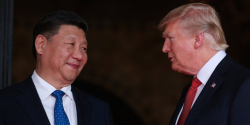
I have long believed this is self-defeating. In a technological age, freedom is essential. But liberty must be ordered to be meaningful. Anarchy is not freedom. Without some limits, to the point where your fist gets to my nose for instance, the only humans who are free are those without humanity.
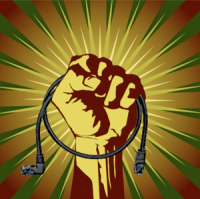
It is easy to abuse freedom. Just abuse someone else. Just ignore their humanity for a few moments while you tweet something clever.
We know now that Vladimir Putin took advantage of our lax attitude concerning freedom to rig the 2016 election for his favored candidate, Donald J. Trump. In that effort he was aided by cybercriminals calling themselves Anonymous, by hired guns within the Russian computer industry, and by the Trump campaign itself.
But can the President of the United States be charged with treason? Is this a law he can’t violate by definition? That’s the question that remains unanswered, which challenges the essence of our democratic system.
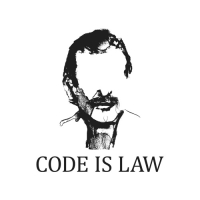
All information is weaponized in a cyber war. So too with code. When only one side is firing in a cyber war, when the other side is limited, the victor will be clear. It won’t be the side that is holding back.
In the end, limits on freedom are necessary. Rules are necessary. The World Cup is being conducted in Russia in an atmosphere of peace. Those fans fortunate enough to get in know that they are a studio audience. The Ultras know that violence will be met with violence by the authorities.
For free people, for civil society, to win World War III we must first realize how weakened we have let ourselves become. We must first take our country back. All the levers of power are held by the other side.
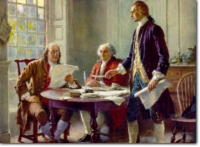
But this is not just an American war. Like World War II, this is a global war. Civil society, Internet society, are everywhere. Already great swaths of the global population are seeing their access to information censored. Authoritarianism is on the march. When faced with a binary choice between anarchy and order, those who have a stake in society are prone to choose order, and so destroy any hope for liberty.
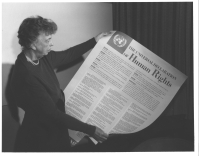
We do have allies. The Cloud Czars, and all the tech companies that serve them, depend on human capital for their growth. The people who created the Internet as we know it, know what it requires. Their leaders understand the twin threats of crime and authoritarianism. They are starting to see that the threat is not just against us but against them, and they are trying, each in their own way, to fight back on our behalf.
But before they can hope to triumph, there is something the rest of us need to do. The Internet needs a Declaration of Interdependence. We need something like an online Constitution, and a Bill of Rights, assuring ordered liberty for those who accept both order and liberty. We need to know who will remain on our side and get their allegiance to principles guiding online action.
Only then, when we know clearly what we’re fighting for, can the free Internet hope to go on offense.









